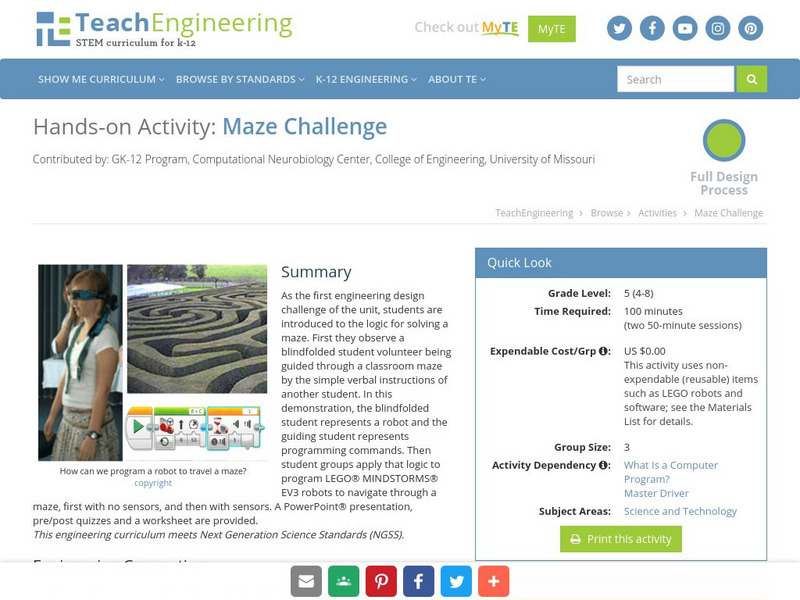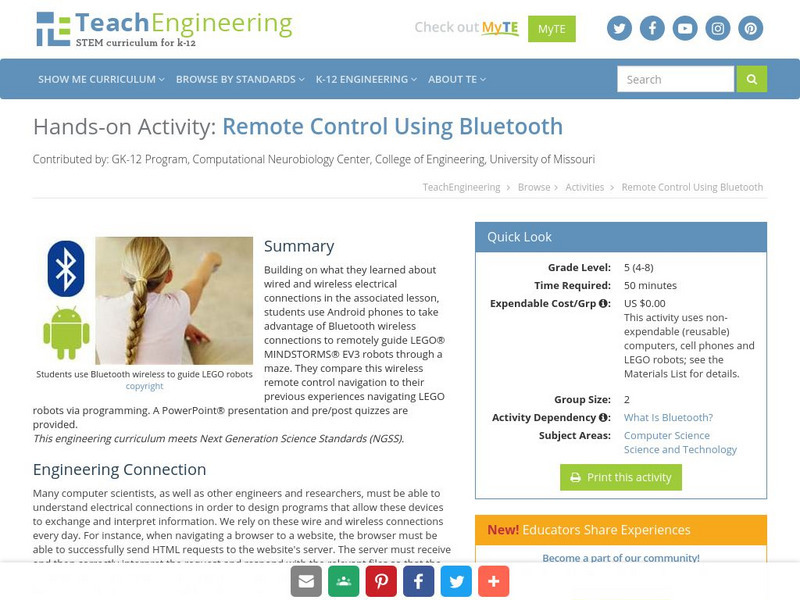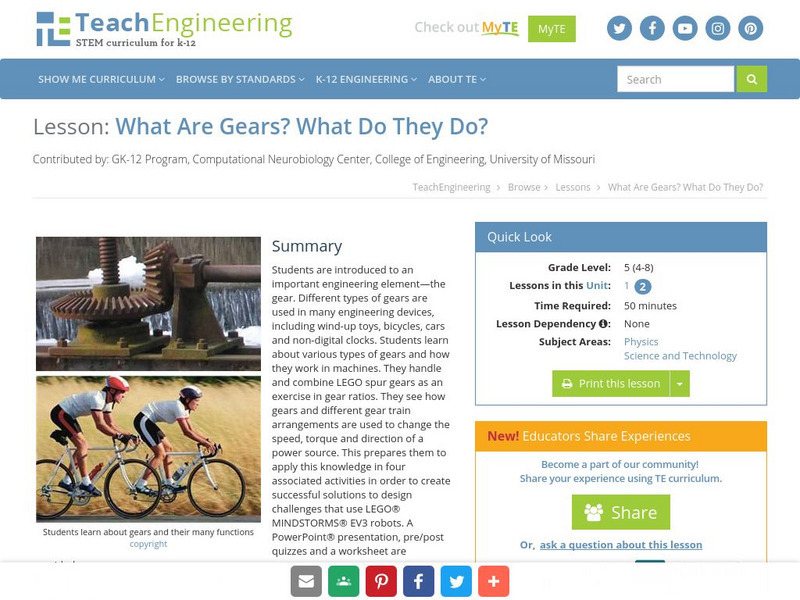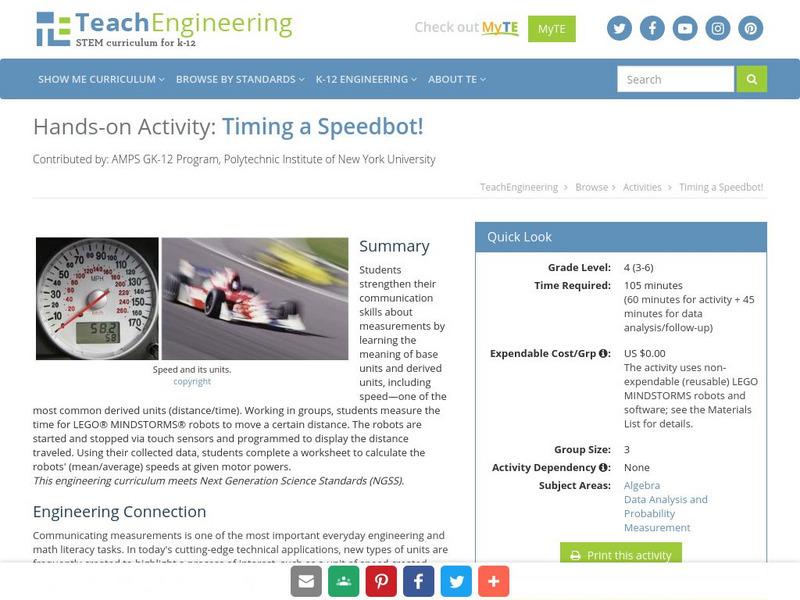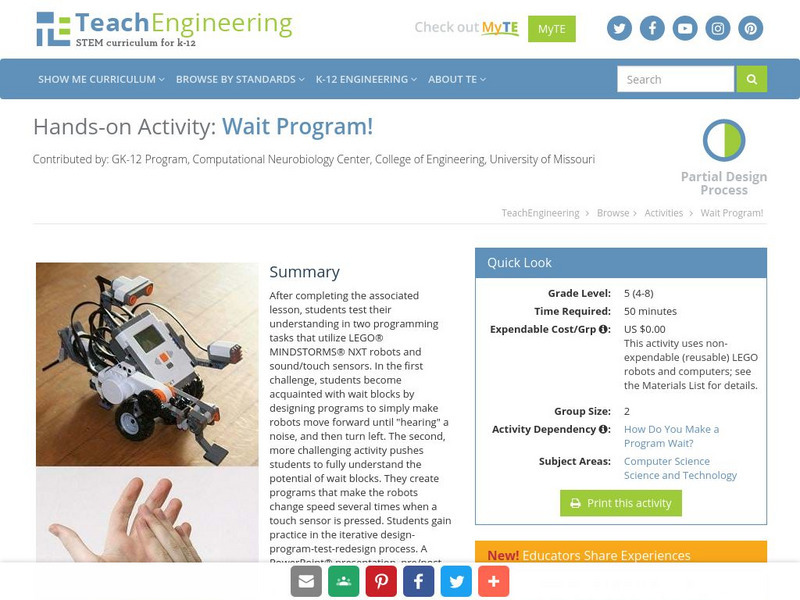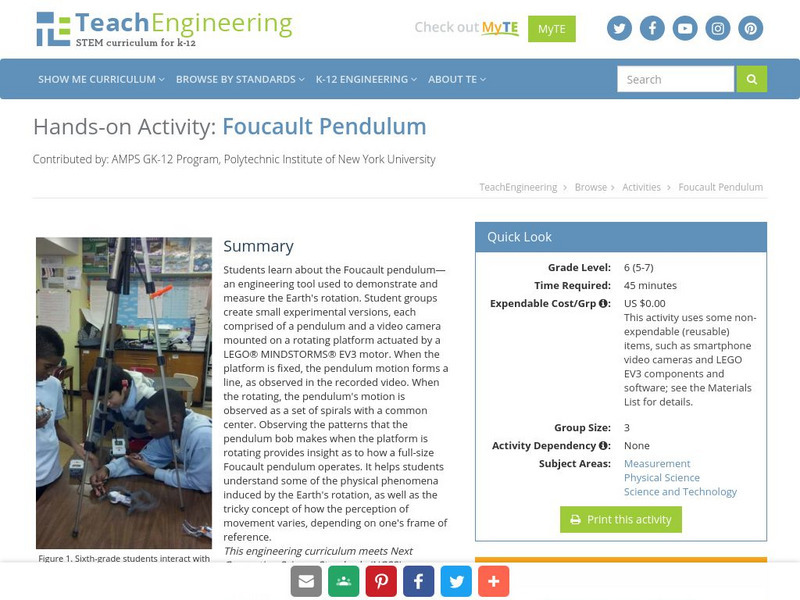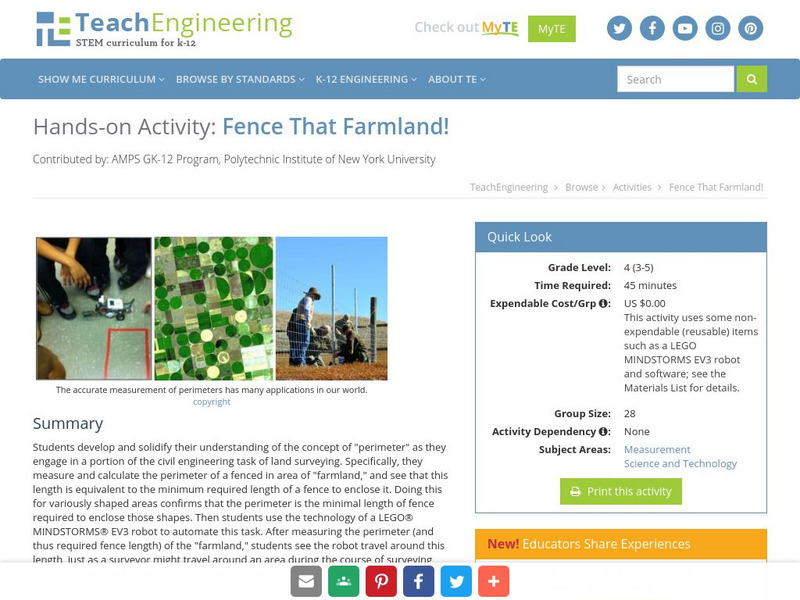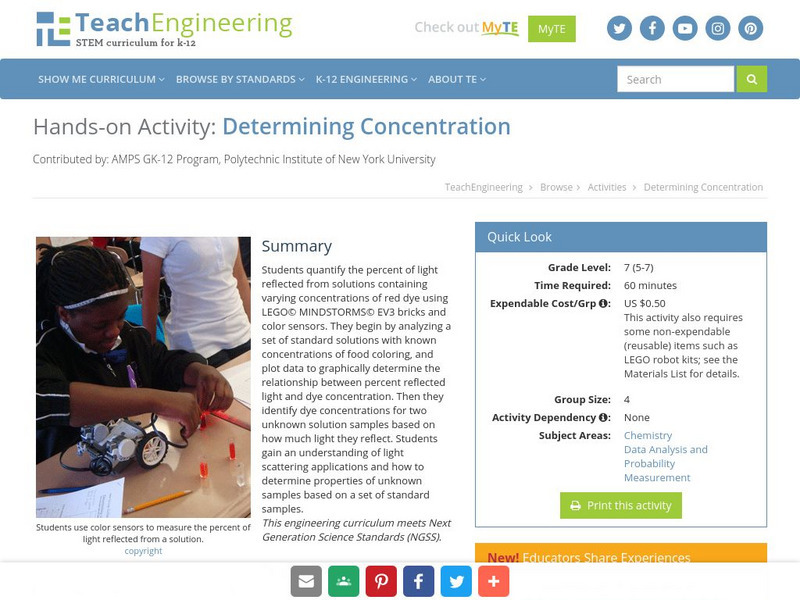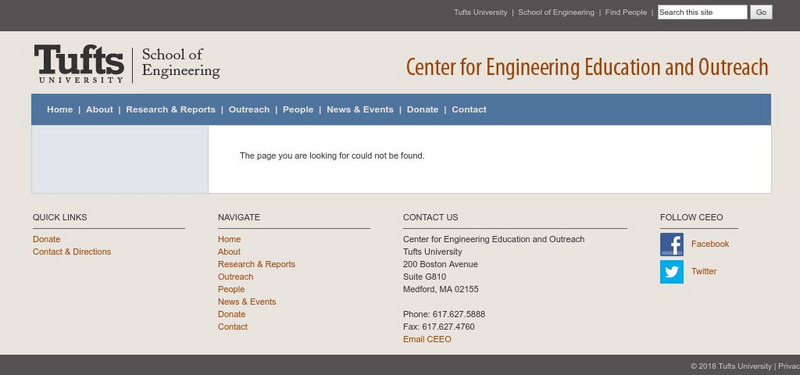TeachEngineering
Teach Engineering: Maze Challenge
As the first engineering design challenge of the unit, students are introduced to the logic for solving a maze. student groups apply that logic to program LEGO MINDSTORMS NXT robots to navigate through a maze, first with no sensors, and...
TeachEngineering
Teach Engineering: Navigating a Maze
Students program LEGO MINDSTORMS NXT robots to go through a maze using movement blocks.
TeachEngineering
Teach Engineering: Remote Control Using Bluetooth
Building on what they learned about wired and wireless electrical connections in the associated lesson, students use Android phones to take advantage of Bluetooth wireless connections to remotely guide LEGO MINDSTORMS NXT robots through...
TeachEngineering
Teach Engineering: What Are Gears? What Do They Do?
Students are introduced to an important engineering element- the gear. This prepares them to apply this knowledge in four associated activities in order to create successful solutions to design challenges that use LEGO MINDSTORMS NXT...
TeachEngineering
Teach Engineering: Timing a Speedbot!
Students strengthen their communication skills by first learning the meaning of base units and derived units. Then, working in groups, students measure the time for LEGO MINDSTORMS NXT robots and calculate the robots' average speeds at...
TeachEngineering
Teach Engineering: The Car With a Lot of Potential
Working in teams, students perform quantitative observational experiments on the motion of LEGO MINDSTORMS NXT robotic vehicles powered by the stored potential energy of rubber bands. Students understand that through the manipulation of...
TeachEngineering
Teach Engineering: Wait Program!
After completing an associated lesson, students test their understanding in two programming tasks that utilize LEGO MINDSTORMS NXT robots and sound/touch sensors. Students gain practice in the iterative design-program-test-redesign process.
TeachEngineering
Teach Engineering: What Is a Computer Program?
Through four lesson and four activities, students are introduced to the logic behind programming using LEGO MINDSTORMS NXT robots.
TeachEngineering
Teach Engineering: What Is a Program?
Using a few blindfolds and a simple taped floor maze exercise, young scholars come to understand that computers rely completely upon instructions given in programs and thus programs must be comprehensive and thorough. Then students learn...
TeachEngineering
Teach Engineering: How Do You Make Loops and Switches?
Students learn how to program using loops and switches. Using the LEGO MINDSTORMS NXT robots, sensors and software, student pairs perform three mini programming activities using loops and switches individually, and then combined.
TeachEngineering
Teach Engineering: What Is a Motor? How Does a Rotation Sensor Work?
Students learn about electric motors and rotational sensors. They create a basic program using the LEGO MINDSTORMS NXT interface to control a motor to move a small robot.
TeachEngineering
Teach Engineering: How Does a Light Sensor Work?
A mini-activity, which uses LEGO MINDSTORMS NXT intelligent bricks and light sensors gives students a chance to investigate how light sensors function in preparation for the associated activity involving the light sensors and taskbots.
TeachEngineering
Teach Engineering: Foucault Pendulum
Students learn about the Foucault pendulum, an engineering tool used to demonstrate and measure the Earth's rotation. Student groups then create small experimental versions, each comprised of a pendulum and a video camera mounted on a...
TeachEngineering
Teach Engineering: Fence That Farmland!
Students develop and solidify their understanding of the concept of perimeter as they engage in a portion of the civil engineering task of land surveying, using the technology of a LEGO MINDSTORMS NXT robot to automate this task.
TeachEngineering
Teach Engineering: Line Follower Challenge
Student groups are challenged to program robots with light sensors to follow a black line. Learning both the logic and skills behind programming robots for this challenge helps students improve their understanding of how robots work, and...
Technology Student
Technology Student: Robo Lab
This site describes how to use the RoboLab software that is used with the Lego Mindstorms system. The Mindstorms product is used to introduce robotics to beginners.
TeachEngineering
Teach Engineering: Determining Concentration
Students quantify the percent of light reflected from solutions containing varying concentrations of red dye using LEGO MINDSTORMS NXT bricks and light sensors. They begin by analyzing a set of standard solutions with known...
Other
Robotc: Thinking About Programming: Programmer & Machine [Pdf]
In this lesson, students learn about the roles of the programmer and the robot, and how the two need to work together in order to accomplish their goal. Students also understand logic behind the robot's actions, and break a big plan down...
TeachEngineering
Teach Engineering: How Does a Sound Sensor Work?
Students learn about how sound sensors work, reinforcing their similarities to the human sense of hearing. This lesson and its associated activity enable students to appreciate how robots can take sensor input and use it to make...
Other
Tufts University: Stomp: Nxt Activity Database
A collection of lesson plans that can be used with the Lego Mindstorms NXT robots. Lesson plans include procedure, student handouts, and programming code.
TeachEngineering
Teach Engineering: Robot Sensors and Sound
Using microphones connected to computers running Audacity software, student teams experiment with machine-generated sounds and their own voices and observe the resulting sound waves on the screen, helping them to understand that sounds...
Khan Academy
Khan Academy: Bonus Points
After completing the electrical engineering project called Ant Bot, improve your machine and share your ideas with others.
Khan Academy
Khan Academy: Bonus Points
Take part in some challenges after completing electrical engineering project, ant bot. SHare your ideas, and see how others have improved thier bots.
TeachEngineering
Teach Engineering: Haptics: Touch Command
Students experience haptic (the sense of touch) feedback by using LEGO MINDSTORMS NXT robots and touch sensors to emulate touch feedback recognition. With four touch sensors connected to LEGO NXTs, they design sensor attachments that...


